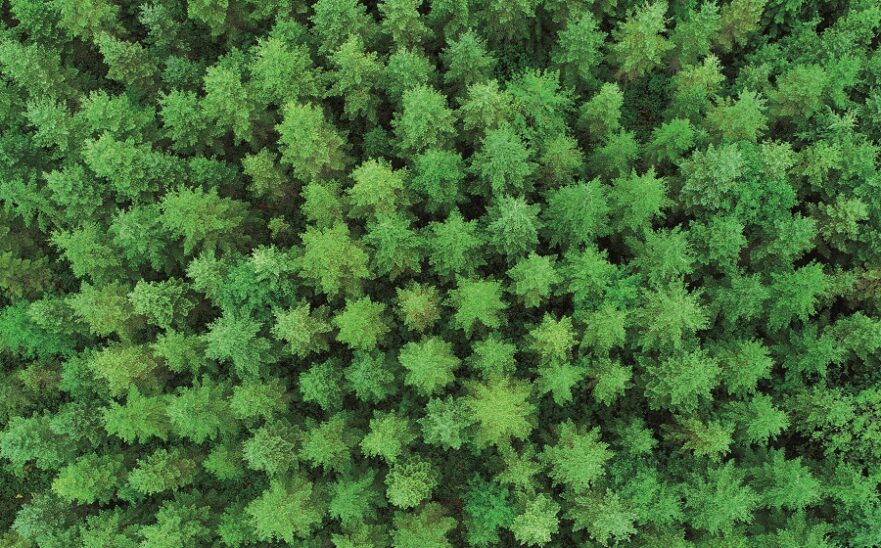Managing urban landscapes is one of the greatest challenges we face this century. Globally, 60% of the area expected to be urban by 2030 has yet to be built. The effects of this urbanization will undoubtedly reach far beyond the physical boundaries of cities. Accompanied by increased competition for land, unequal distribution of wealth, and often unplanned expansion of urban infrastructure and services, urbanization is also exposing more people to cumulative natural and human-made disturbances, such as floods, wildfires, and heat waves.
The state of urban ecosystems and the wellbeing of urban dwellers will greatly depend on the way cities anticipate and prepare for rapid change in the next decade. Urban forests have an important role to play, and considerable scientific effort has focused on their potential to maintain, and improve, urban quality of life. Studies found that urban trees improve air quality; reduce storm water runoff; cool the air and reduce the impacts of the urban heat island effect; support biodiversity; and provide cultural and social benefits such as improved public health. A bias in these studies, however, is that they tend to emphasize only one-way flows (i.e. services/disservices) from nature to people, and not the two-way flows which include human actions and values that con-tribute to forest health and ecosystem service provision. Furthermore, little focus has been given to the role of natural forest fragments in and around cities to make communities more livable and resilient.

Cities and human populations in Metro Vancouver have increased by about 30% between 1996 and 2016, mainly driven by an enhanced regional economy and livability. Currently, the City of Vancouver is densifying while surrounding cities are sprawling, often encroaching on surrounding forests and agricultural land. Among the fastest-growing is the City of Maple Ridge, its population increased 30% from 2001 to 2011, and is projected to increase a further 30% between 2016 to 2021. Maple Ridge has committed to protecting the environment and responding to climate change impacts through the enhancement of urban forests. However, it lacked information on the benefits provided by these forests to build a strong case for their conservation.
To address this, in 2018 we started a project with the City of Maple Ridge to generate information on the contribution of their urban forest to resilience and livability. We studied the multiple ecosystem services provided by urban forests as well as the views and contributions of people using, maintaining, and enhancing these forests (i.e. two-way, or reciprocal flows). We focused on public forest fragments, which may be more cost-effective to conserve and enhance compared to creating new urban greenspace. Finally, we assessed the effects of urbanization on these forest fragments working along an urban-rural gradient from the core of Maple Ridge to the UBC Malcolm Knapp Research Forest.
The project studied the social an ecological dynamics around urban forests by measuring trees, shrubs, and coarse woody debris in 21 forest plots set up along the urban-rural gradient in order to evaluate changes in forest structure, composition, and ecosystem services. We are now evaluating the influence of fragmentation and surrounding land cover on these results.

Recently, we started the social component of the project with a five-day field campaign to engage citizens along the gradient through on-site surveys and observations. The field campaign involved UBC Faculty of Forestry, postdocs, PhD and MSc students, as well as undergraduate students enrolled in the urban forestry program. The experience was rich in two ways. First, it helped us gain a better understanding of the social valuation of greenspace in rapidly growing cities like Maple Ridge, in contrast to perceived risks that predominate around forest fragments such as waste, homelessness, lack of security, human-wildlife conflict, and wildfire risk. Second, the field campaign created a unique opportunity for reflection on urban forestry by providing meaningful exchange between faculty and students at different stages of their academic careers.
Moving forward, we are using our data to identify synergies and trade-offs between different actual and perceived ecosystem services and risks associated to forest fragments along the gradient. We are going back to Maple Ridge this Spring to present the results and distill practical ways in which co-benefits provided by urban forests could be enhanced while reducing perceived risks. Participatory mapping, interviews, and social network analysis will help us complement our results and inform urban forest stewardship strategies to build social-ecological resilience in the context of climate change.
Our study is a collaboration between the Faculty, the Institute of Resource Environment and Sustainability and, the Planning Department of Maple Ridge. We are thankful for the significant help received from students from both the Faculty and the British Columbia Institute of Technology.

For more information, contact:
Tahia Devisscher
Banting Post-doctoral Fellow at the Department of Forest Resources Management
tahia.devisscher@ubc.ca
Matthew Mitchell
Research Associate at the Faculty of Land and Food System
matthew.mitchell@ubc.ca
Cecil Konijnendijk
Professor at the Department of Forest Resources Management
konijnendijk@ubc.ca



